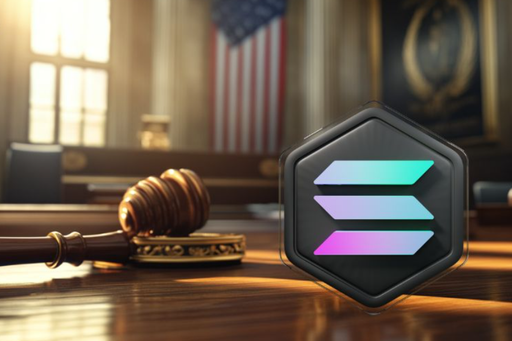
Why Were Solana ETF Filings Rejected?
With Solana ETF filings disappearing from the CBOE (Chicago Board Options Exchange) website over the weekend, the future of Solana ETFs becomes more uncertain.
- Published:
- Edited:
The SEC has rejected 19b-4 ETF Filings, stalling proceedings and dashing hopes of a potential approval.
While Bitcoin and Ethereum ETFs have both found a home on Wall Street, Solana’s contentious position as a security might be holding it back.
SEC Rejects 19b-4 Filings: Why?
Eagle-eyed market participants ruffled feathers over the weekend, discovering that filings for both VanEck and 21Shares proposed Solana ETFs had been removed from the CBOE’s website.
Filed by the CBOE on behalf of issuers, these 19b-4 filings were never formally submitted to the Federal Register.
It is believed that Solana’s lingering status as a security represents a significant cause of concern for the SEC. This comes as a somewhat surprising development, given the SEC’s recent motion to amend the status of third-party assets like SOL, MATIC, and ADA in its ongoing legal battle with Binance.
Had the 19b-4 filings been submitted to the Federal Register, a deadline for approval would’ve been set. This would’ve applied considerable pressure on the SEC, a government agency that may witness significant upheaval following a change of administration in the Oval Office.
By rejecting the 19b-4 filings, the SEC has stalled developments. This suggests that Solana ETFs in the U.S. might not be happening as soon as the crypto community would like.
However, the Solana faithful are not so easily discouraged. While the 19b-4 filings have been rejected, nothing is stopping exchanges like CBOE and NASDAQ from resubmitting filings with stronger arguments.
VanEck “Remains in Play”
Pushing back on the SEC’s concerns, VanEck maintains its bullish outlook on Solana and is committed to seeing a SOL ETF hit traditional markets.
Matthew Sigel, VanEck Head of Digital Assets Research, took to social media to bolster confidence in an eventual approval. Sigel argues that Solana’s continued progress toward decentralization and evolving legal perspectives around crypto asset regulation suggests the asset deserves to be classified as a commodity, rather than a security.
Putting the firm’s position in concrete terms, Sigel contends that VanEck’s filing “remains in play.”
Despite VanEck’s optimism, many commentators argue that an eventual approval hinges on the result of the upcoming U.S. Presidential election. Citing the lack of CME-approved Solana futures markets, ETFStore President Nate Geraci argues that a Trump presidency would be favorable for SOL ETF approval hopes.
This thesis echoes views held by other industry experts. Upon the initial announcement of VanEck’s filing, Bloomberg Analyst James Seyffart posited that approval of a SOL ETF relied on changes in the White House.
Looking to the rest of the world, Solana continues to find a home in various ETPs (Exchange-Traded Products) in Europe, as well as a recent approval in Brazil. While still far from the recognition and pedigree of Wall Street, Solana’s inclusion in traditional markets worldwide helps set a precedent that helps to solidify Solana’s position in financial markets.
Read More on SolanaFloor
Solana’s Predictions markets are heating up:
Drift Predictions Market BET Attracts $3M in Liquidity at Launch, Can it Replace PolyMarket?
What Can I Do in the Solana Ecosystem?
[https://solanafloor.com/learn/the-solana-ecosystem]


